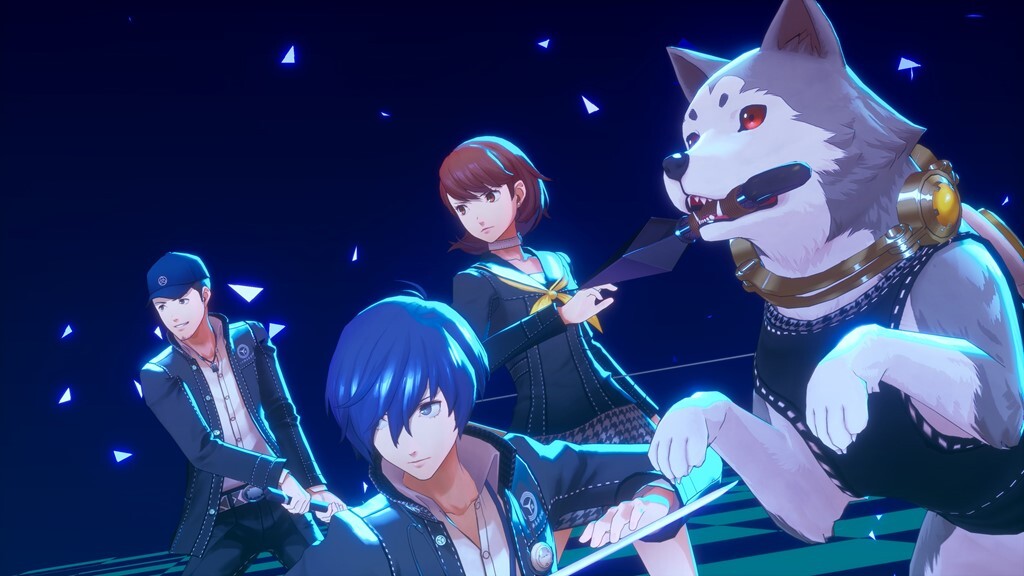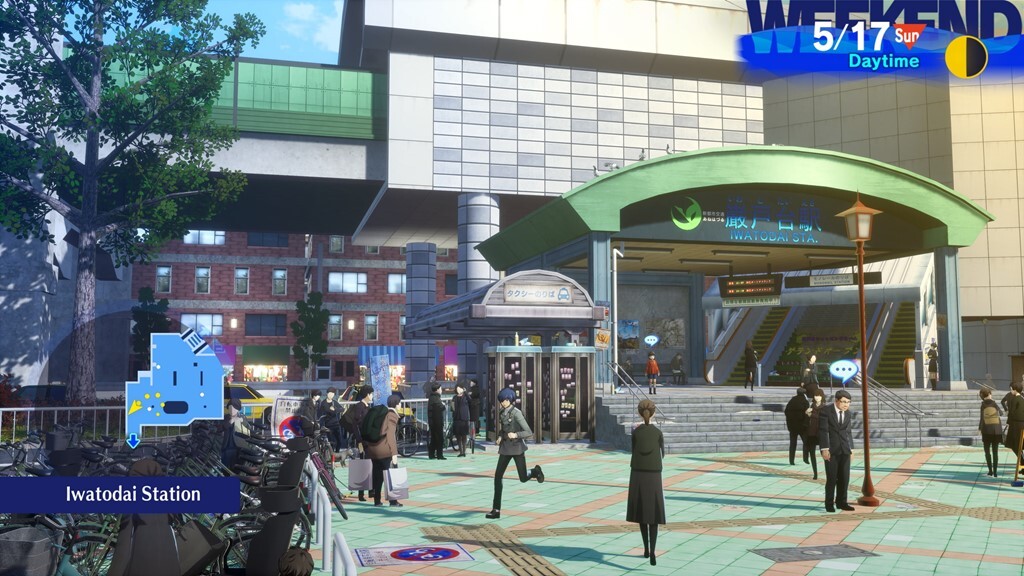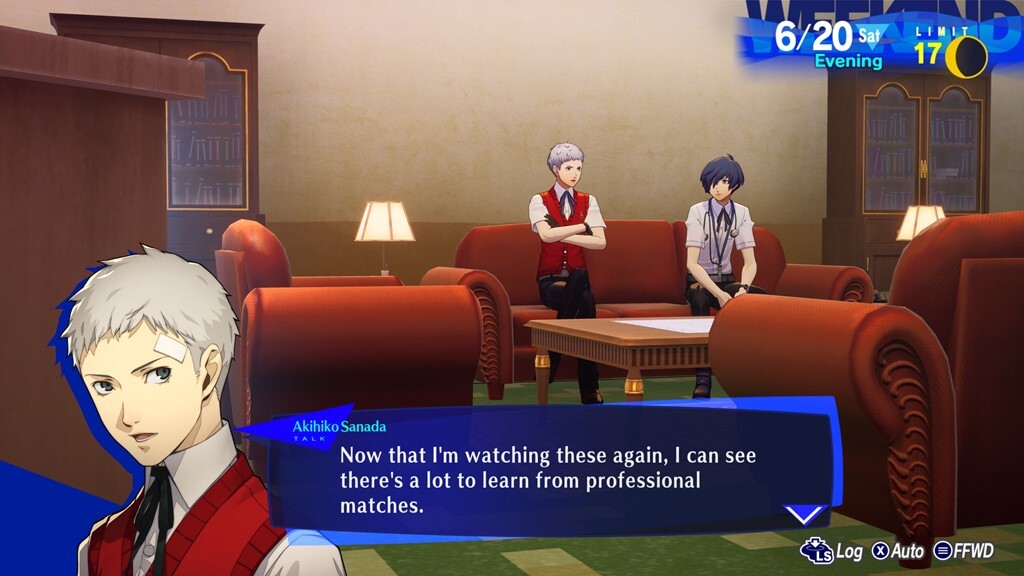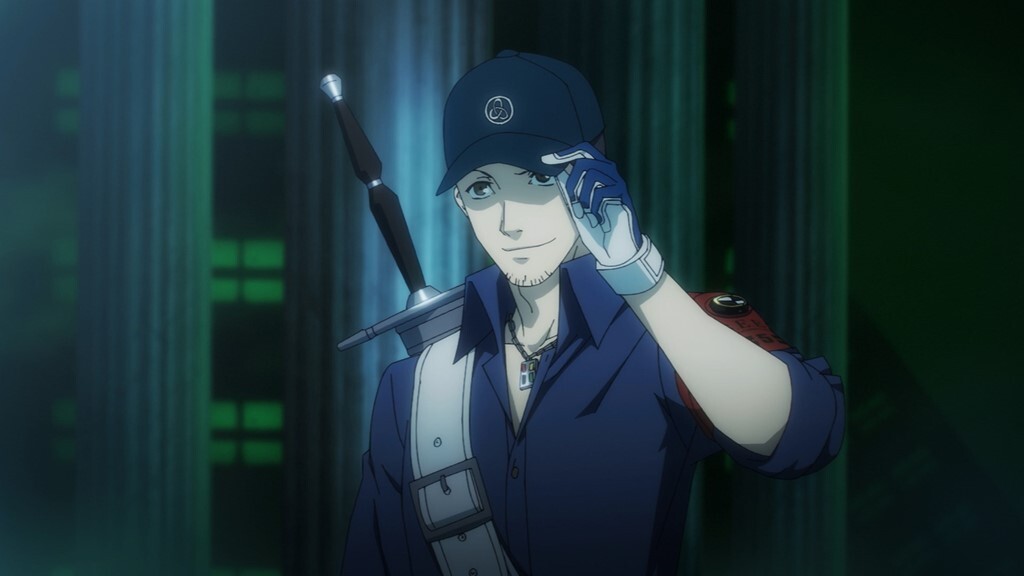Persona 3 is often called the darkest entry in its series, and within two minutes of starting it becomes clear why. Persona 3 Reload, remake of the 2006 classic, opens just like its previous versions: with a distressed young girl slumping to the floor as she attempts to work up enough nerve to place a gun against her temple. It's a shocking scene, made even more distressing when our protagonist is greeted by that same girl as he walks into his new school dorm. Her disposition does not betray what she was presumably doing just moments before, as she greets him in a charming, albeit slightly alarmed, manner. Yet, like Persona 3 as a whole, there's more to the situation than both we as players, and the protagonist, can see.
Beyond a grim exterior is a beautiful balancing act--one that carefully weighs tension and relief, love and loss, mystery and resolution, and that aforementioned macabre nature against an unrelenting light. It's only fitting, then, that nearly 20 years later, developer Atlus has chosen to revisit Persona 3 in an effort to rebalance its gameplay as masterfully as its themes. Persona 3 Reload triumphs in doing this, delivering an unforgettable and emotionally resonant story alongside improved visuals and brilliantly re-strategized combat. While not quite as transformative as its name might imply, Reload successfully modernizes the Persona series' greatest and most relatable story.

In true Persona fashion, our story begins with an unnamed protagonist transferring to a new high school: Gekkoukan High. While both the school and the seaside city of Tatsumi Port Island feel relatively unassuming at first, it doesn't take long for him to discover the Dark Hour--an eerie and nearly undetectable period of time that exists just after midnight in which murderous shadows are unleashed upon the world. Soon after, he learns that his fellow dorm mates are actually members of the Specialized Extracurricular Execution Squad (SEES), a secretive school organization hellbent on fighting those shadows using the power of persona.
After a shadow attacks his dorm, the protagonist discovers he also has the power of persona and can use a gun-shaped item called an Evoker to summon forth physical manifestations of his psyche to fight--much like Yukari, the girl shown in the game's opening scene. He then joins SEES as its combat leader, assisting Yukari and fellow team members Akihiko and Mitsuru in eliminating large shadows and recruiting even more members to the cause.
And yet, risking his life night after night doesn't stop our hero from having other responsibilities as well. While nights are chiefly reserved for fighting monsters in the dark tower of Tartarus--the game's seemingly infinite dungeon--it is up to you to decide how he manages his days. Between classes, crushes, computer games, and clubs, there are many options to pick from. These two features--turn-based combat and time management--form the core gameplay loop for Persona 3 Reload and interact with one another closely. When you raise your social links during the normal hours of a day, for example, you and your personas grow stronger in the Dark Hour. Conversely, when you explore Tartarus and take down the large shadows that emerge each full moon, you get to see the consequences of your actions unravel in the real world.

For me, combat became more of a chore than the game's social sim element in Persona 3's previous iterations, but Reload manages to keep both parts engaging, and neither of them outshines the other drastically. When I grew tired of belting out karaoke alone in an attempt to raise my character's courage, exploring Tartarus' labyrinthine floors offered some much-needed mental stimulation. When I got my ass handed to me in a battle for which I was more than a little under-leveled, studying for midterms was, somehow, a welcome reprieve. The key to this successful back-and-forth lies in some of Reload's brilliant additions, with the combat side seeing the most dramatic of these improvements.
On top of new spells and personas, Reload adds two new systems to Persona 3's combat: Shifting and Theurgy. For those who have played Persona 5, Shifting will come naturally, as it is simply the Baton Pass system with a new name. This gives you the ability to pass your turn to another one of your party members if you hit an enemy's weakness, subsequently awarding strategic thinking with damage-dealing combos. Theurgy, on the other hand, gives players a powerful trump card in the shape of ultimate abilities that often bypass enemy weaknesses or boost your team's next string of attacks once a character's Theurgy gauge is filled. Each character's Theurgy ability, as well as their requirements for filling up their gauge, vary based on their general fighting style. Yukari, for example, grows more powerful the more she heals her teammates, ultimately unlocking a powerful wind-based move that bypasses any enemy resistances.
Together, these mechanics make combat more fluid, more fun, and, to be honest, a lot easier than it was in Persona 3. Sure, you might be exploring dungeons that are far more simplistic than the flashy, themed ones seen in Persona 5, but things don't feel stale thanks to drastically improved combat. That said, don't take that to mean fighting lacks any resistance. Plenty of monsters still put up a fight, so you'll still get absolutely wrecked if you go into a battle without thinking through your persona fusions or bringing along a single party member who can cast a few buffs or debuffs. Amrita sodas remain a must-have and frequent Monad floors--bonus floors with a single, extra-strong enemy that essentially replace the original games' Monad Depths--keep things challenging. Additionally, there are two difficulty modes above normal to accommodate those feeling particularly feisty.
By comparison, the game's social simulation aspect didn't see many significant changes on a mechanical level. The most significant addition is the inclusion of fully-voiced evening activities back at the dorm, which include watching movies with friends, group cooking, gardening, and brushing the world's best boy, Koromaru. On top of killing time during the once-notoriously-dull evenings of Persona 3, these activities are a fun way to improve your relationships and social stats, as well as unlock new abilities for your party members. And best of all, get to see a little bit more of the main cast's personality shine.

That said, Reload might be disappointing to those expecting a more transformative experience. In addition to missing significant, story-loaded features that are in other versions, such as P3P's female protagonist and P3 FES' bonus chapter, The Answer, Reload adds very little new content compared to Persona 4 Golden and Persona 5 Royal, so don't expect any new characters, locations, events, plot points, or major quality-of-life improvements outside of those dorm activities. While I found myself a bit disheartened by the lack of any newness, the latter became a minor point of frustration for me, as I was hoping for some minor adjustments to the game's calendar that would make maxing out every social link this time around less of a Herculean effort.
However, I can't deny it is still absolutely worth the effort, as Persona 3--and subsequently the very faithful Persona 3 Reload--contains some truly incredible characters and stories. While not every side story is captivating (sorry, Chihiro and Suemitsu fans), there are several that pack real emotional punches and reinforce the game's central themes of love, loss, and how it takes one to know the other. Among some of the game's memorable characters are Hayase, a rival athlete who is figuring out how to support his family and live his dream after the death of his father; the elderly Kitamura, couple who are navigating the loss of their son and their old age; Maiko, a young girl struck in the middle of her parent's messy divorce; Mutatsu, a middle-aged monk who abandoned his family, and Akinai, a man only slightly older than the protagonist who is grappling with terminal illness and isolation. Persona 3 Reload is filled with memorable stories that are both complicated and nuanced.
These themes are similarly exemplified in Reload's main cast, but that doesn't mean that these characters are merely thematic stand-ins. Each member of SEES is multi-faceted, deeply-human, and brings their own baggage and perspective to the party. As such, they don't always see eye to eye with one another, making for some interesting dynamics and opportunities for growth. In particular, I love the relationship between Mitsuru and Yukari, which starts off a bit tense before growing into one of the strongest in the game. While it might be natural to assume that tension comes from pining after the same man, it's such a relief to write that it's about something more significant, and their coming together happens as a result of them overcoming both moments of anger and despair together.
And yet, this relationship is merely one of many that is deeply moving, and is entirely removed from the internal struggles each character faces, such as Yukari's resentment towards her irresponsibly grieving mother or Mitsuru's loneliness. Even the game's more comedic characters like Junpei, or characters that would typically fill the game's "mascot" role, like Aigis or Koromaru, are all taken a bit more seriously and are allowed to explore their own grief and mortality in beautiful ways. There are precious few games that celebrate life and the ones who give it meaning in a way that is as impactful as Reload, and even fewer remind us of the difficult truth that everything is beautiful because we are doomed--and I can't think of any that do it better than Persona 3 Reload.

All these stories and characters are further elevated by spectacular voice acting, now used liberally through the game, and dramatically improved visuals that transform the once static-looking PS2 era game into something that rivals Persona 5 aesthetically. And yet, it doesn't feel as if Reload necessarily seeks to emulate the newest Persona game, but rather uses it as a jumping off point to expand its own identity. There's a unique fluidity to Reload that is reflected in its UI--a sense of depth and somber that reflects both the main character, the port city he lives in, and perhaps even the sentimentality of the game as a whole. Character portraits and animations have never looked better in a Persona game, and the Theurgy moves inject a ton of personality and spirit into battle. And also, they're just really cool. I played for close to 70 hours and I still haven't gotten tired of Mitsuru donning a Shiva-like demeanor as she snaps her fingers and freezes her opponents.
This fluidity and style also works its way into Reload's music, which features the return of Japanese rapper Lotus Juice (who has seemingly only perfected his flow in the years since the original game's release) as well as new singer Azumi Takahasi. The pair's unique sounds work together beautifully on the game's new arrangements of "Burn My Dread" and "Deep Breath Deep Breath," which both somehow retain all the tension they once had while somehow feeling just a bit more groovy and mature. And it's now impossible for me to think of Persona 3 music without "It's Going Down Now" and "Color Your Night" coming to mind, which is just a testament to how suiting and fun both songs are. Sonically, Atlus remains tough to beat.
Simply put, Reload is the greatest way to experience Persona 3's story, and Persona 3's story is one well worth experiencing. While it might not be the definitive edition--or even a remake in the same vein as something like Persona 5 Royal--it contains enough changes and upgrades to make it an extremely worthwhile play for repeat players and newcomers alike.